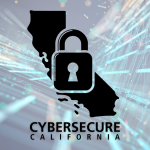As we continue to fortify our cybersecurity strategies this new year, it’s time to zero in on one of the most fundamental, yet often overlooked, aspects of digital security: password management. A strong password acts as the first line of defense against unauthorized access to your personal and business information. Let’s explore how you can power up your passwords and significantly enhance your security posture.
Understanding the Risks
Weak or compromised passwords are a common cause of security breaches. Cybercriminals use various tactics, such as brute force attacks or phishing, to crack or steal passwords. The consequences can range from personal data theft to large-scale business disruptions. Therefore, strengthening your passwords is not just a recommendation; it’s a necessity.
The Anatomy of a Strong Password
What makes a password strong? Here are the key ingredients:
Length: Aim for at least 12 characters. Longer passwords are harder for criminals to crack.
Complexity: Include numbers, symbols, and both upper and lower case letters.
Unpredictability: Avoid predictable patterns, dictionary words, or identifiable personal information.
Uniqueness: Use a different password for every account to prevent a single breach from compromising all your data.
Tips for Managing Your Passwords
- Use a Password Manager
Remembering a unique, complex password for every account can be daunting. Password managers solve this problem by securely storing and filling in your passwords across websites and applications. They also often include password generation tools to create strong passwords for you. - Enable Multi-Factor Authentication (MFA)
MFA adds an extra layer of security by requiring additional verification (like a code sent to your phone) to access your accounts. Even if a password is compromised, MFA can stop unauthorized access, making it a powerful tool in your security arsenal. - Regularly Update Your Passwords
While you don’t need to change your passwords arbitrarily, it’s good practice to update them periodically and immediately change any passwords that may have been compromised. - Be Wary of Phishing Attempts
Always be cautious about where you enter your password. Phishing attempts often try to trick you into providing your password on a malicious site. Remember, no reputable service will ask for your password via email or phone call.
Embracing a Culture of Security
Incorporating strong password practices is more than an individual habit; it’s part of fostering a culture of security within your organization. Regularly discuss the importance of password security, provide training and resources, and encourage everyone to take proactive steps in safeguarding their digital identities.
As we journey through this year of cybersecurity, let’s commit to building stronger defenses, starting with the very keys that protect our digital doors: our passwords. Stay tuned for more insights and strategies each week as we navigate the path to a more secure future together.

